
Longtime Cuban diplomat Ricardo Alarcón died on Sunday at the age of 84. He was a student leader during the Cuban Revolution who eventually became Cuba’s foreign minister and president of the National Assembly, Cuba’s parliament. He played a key role in talks between the United States and Cuba for many years. Democracy Now! spoke to Alarcón in 2015 as the Cuban Embassy reopened in Washington for the first time in 54 years. “You should not overstate the role of diplomats,” Alarcón said of the thawing in relations between the two countries. “The real force that brought about this result was the struggle of the peoples.”
Transcript
AMY GOODMAN: We end today’s show with the words of the longtime Cuban diplomat Ricardo Alarcón, who died on May Day at the age of 84 in Cuba. He was a student leader during the Cuban Revolution who eventually became Cuba’s foreign minister and president of the National Assembly, Cuba’s parliament, and played a key role in talks between the U.S. and Cuba for many years. I spoke to him in 2015 outside the Cuban Embassy in Washington, D.C., which had been opened for the first time in more than half a century.
RICARDO ALARCÓN: We have to say that it was and it is the result of many years of struggle by many people — the Cuban people, but many friends here in this country and around the globe. And I think it’s a victory. It has to be recognized as a victory for us, for our people, and for all those who were opposing the U.S. policies during this half a century. At the same time, it should be recognized, the merit of President Obama for having realized that it was high time to abandon a policy that he, himself, recognized as a failure. This is still — we have come a long way, but there is still a long way to go ahead of us. But for the first time, it will be the Americans and Cubans dealing with each other on an equal footing.
Something very important, Amy, that I think that everybody should remember: Last Saturday, the United States was the only country in the Western Hemisphere who didn’t have an embassy in Havana. And Cuba couldn’t — was the only country in the Western Hemisphere without an embassy here. Now what has happened is that the U.S. has joined — has joined the rest of Latin America and the Caribbean. This story began when the U.S. succeeded in isolating Cuba from the rest of the hemisphere, and now the first chapter has ended with the U.S. ending its isolation from the rest of the continent.
AMY GOODMAN: How did it happen?
RICARDO ALARCÓN: You should not overstate the role of diplomats, the profession. The real force that brought about this result was the struggle of the peoples — first of all, the Cuban people, for having resisted for so long time all the odds that that U.S. policy imposed upon us, but also a victory for the rest — the resistance of the rest of the peoples in this hemisphere, including many, many American friends.
AMY GOODMAN: You have been a diplomat for decades.
RICARDO ALARCÓN: Yeah.
AMY GOODMAN: Cuba was just taken off the list of terrorist nations in the United States. How does that feel, not to be considered a terrorist anymore?
RICARDO ALARCÓN: Frankly speaking, you had asked Nelson Mandela how did he feel about being in that list. Mandela was considered a terrorist probably for a longer period of time. His entire life, when he was in prison, when he got out of prison, when he was elected president of South Africa, when he got the Nobel Peace Prize, he was on the list of the State Department list of terrorists. And they took him out in 2008, I suspect, because they were suspecting Mandela was going to die and was going to die in that infamous list. By the way, it was a senator from Massachusetts, now secretary of state, who said at that time that it was a shame on the U.S. policy to have that list and in that list people like Mandela. In the list or not being in the list, it doesn’t matter. The embargo is a matter of other laws, other different laws that has to be removed.
AMY GOODMAN: Longtime Cuban diplomat Ricardo Alarcón has died at the age of 84. He was speaking on Democracy Now! in 2015 in Washington, D.C., after the Cuban Embassy was reopened there for the first time in 54 years. The Trump administration put Cuba back on the list of state sponsors of terrorism in 2021. Biden has not reversed President Trump’s reversing Obama’s normalization process for Cuba. To see the whole interview, go to democracynow.org. I’m Amy Goodman. Stay safe.

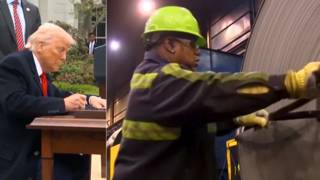
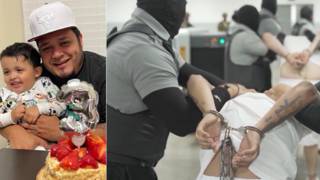
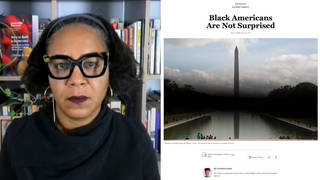
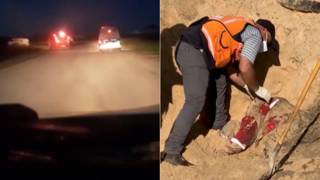






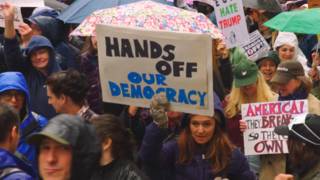
Media Options